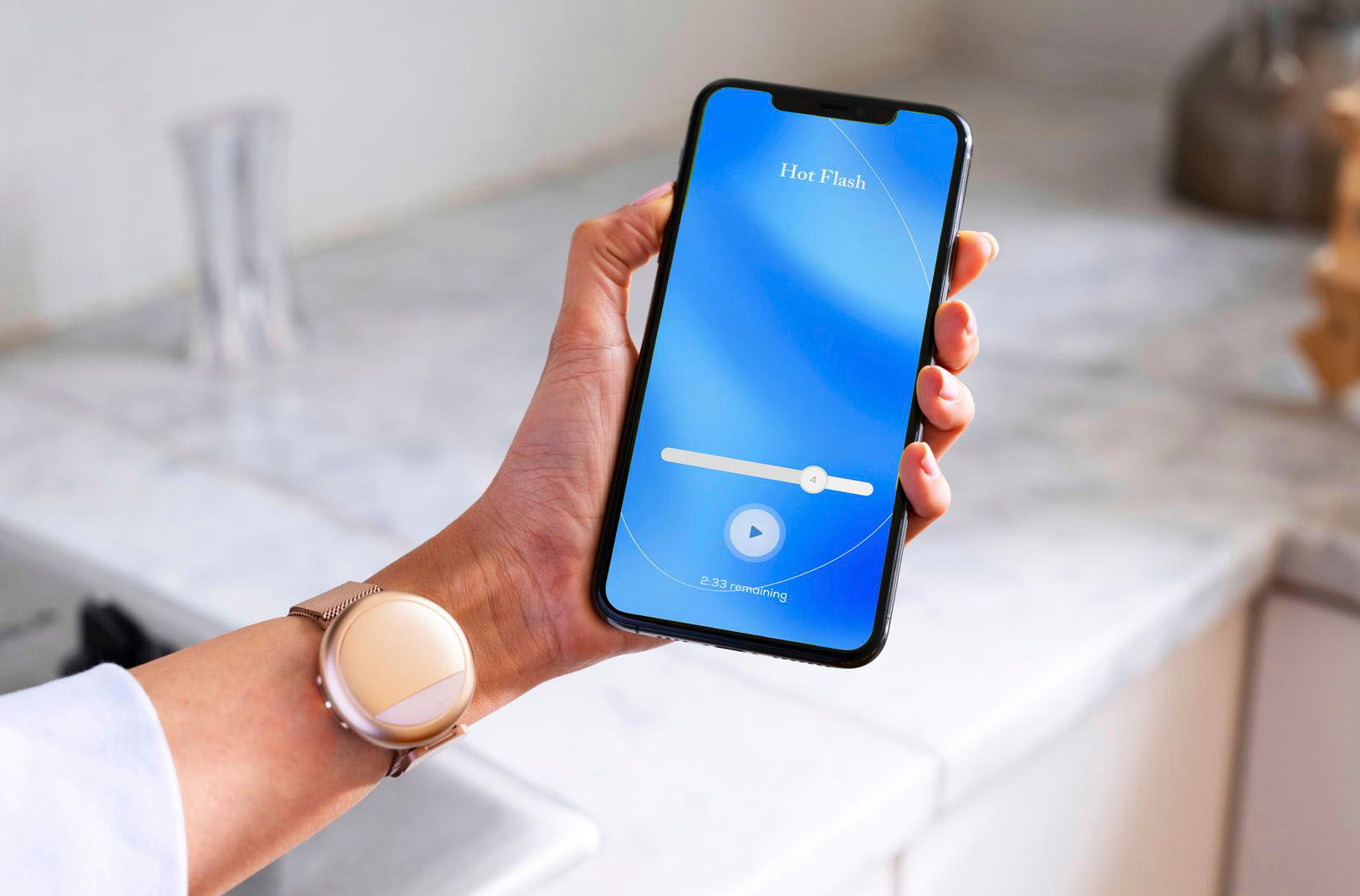Taking action before, during, and after menopause may be central to women’s health.
What’s happening: Embr Labs, makers of a wearable that treats menopause symptoms in real-time, raised $35M to expand its retail footprint.
The wrist-worn Embr Wave device delivers on-demand cooling and warming sensations, a nonhormonal intervention clinically proven to relieve hot flashes and improve sleep.
Wake Up Call
Most women enter menopause between ages 40–58, with hormonal changes causing hot flashes, night sweats, and brain fog, as well as low libido, stress, and depression.,
But, some women enter perimenopause in their 30s, and the effects of menopause can endure up to 14 years.
Still, only one in five women ever seek care, despite a host of negative health implications:
- Research suggests aging-related conditions like osteoporosis, Alzheimer’s disease, and heart disease are linked to hormonal shifts from the onset of menopause.
- Using epigenetic clocks, UCLA researchers found hormonal changes at menopause accelerate cellular aging by 6%.
- Earlier menopause results in a 12% increased risk of all-cause mortality and shortened lifespan by ~3.5 years.
Whole-life care. The traditional healthcare system often fails to meet the needs of women, forcing them to seek out alternative solutions.
Filling a void, providers are tapping next-gen wearables, at-home diagnostics, and precision supplements to connect the dots between hormonal health and overall well-being.
- InsideTracker recently integrated hormonal diagnostics as part of its personalized healthspan optimization platform.
- Oura is developing new use cases for its cycle-tracking tech, investing in holistic features for women’s physical, mental, and emotional health.
- Gennev and Lisa Health’s AI-driven app Midday integrate education with symptom tracking and lifestyle medicine.
- Both Hormona and Eli Health recently landed funding to deliver everyday health insights through hormone diagnostics.
Fortunately for women, care providers are extending themselves to meet their needs. UK-based Peppy raised $45M this year to bring its B2B menopause services to the US, while fertility clinic Maven added menopause care last fall before raising $90 to expand in the UK.
Looking ahead: It’s early days for integrated menopause care, but by delivering services with greater personalization, understanding, and empathy, there’s an outsized opportunity to prevent its detriments, both seen and unseen.
 Embr
Embr


